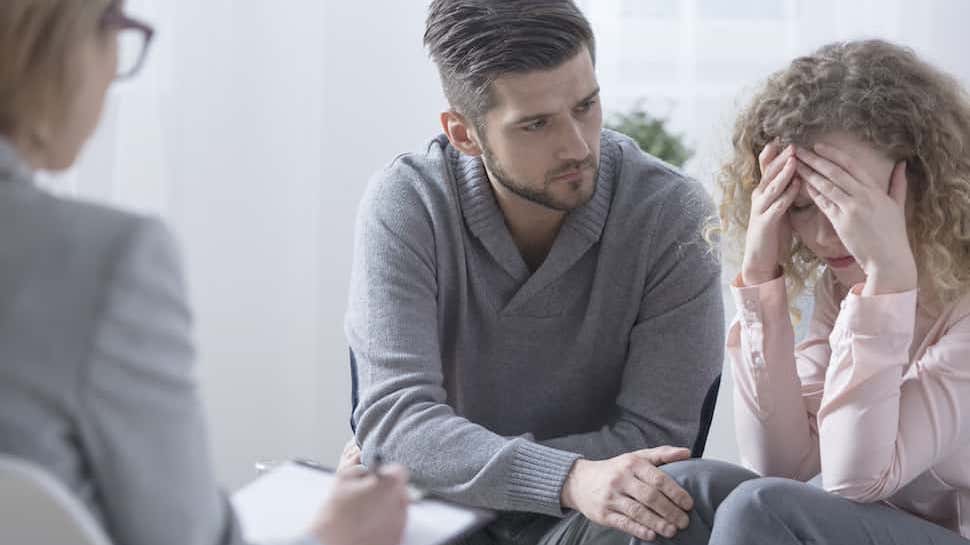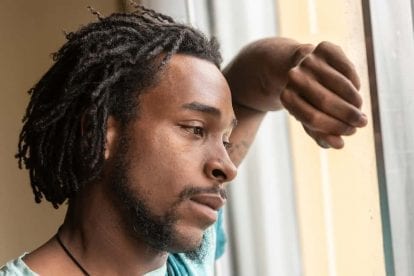
PTSD and Relationships
The symptoms of post-traumatic stress disorder (PTSD) can make any relationship difficult. It is hard for many people with PTSD to relate to other people in a healthy way when they have problems with trust, closeness, and other important components of relationships. However, social support can help those with PTSD, and professional treatment can guide them toward healthier relationships.
Many of the symptoms of post-traumatic stress disorder (PTSD) can interfere with having a healthy relationship. The four types of symptoms include having flashbacks or nightmares about the trauma, staying away from situations associated with the trauma, feeling nervous or irritable, and having increased negative thoughts and feelings.
These symptom types can exhibit themselves in a variety of ways. For instance, a sound or experience might suddenly trigger a flashback, and the person with PTSD could stop wanting to spend time with loved ones, feel down a lot, have trouble trusting people, avoid certain places, and suddenly become angry.
These kinds of reactions can make relationships more difficult on a daily basis.
However, relationships can help people with their PTSD symptoms, in addition to the on-going support and guidance of guidance of professional treatment.
How PTSD and Relationships Affect a Person
PTSD and relationships can affect important areas of one’s life, such as trust, communication, and feeling close to another person. There are different ways a person can respond to PTSD symptoms. He or she might:
- Have trouble with intimacy
- Not feel relaxed at home or with other people
- Feel detached from other people
- Have difficulty handling emotions
- Have a lot of anger, which can exhibit itself in pushing people away, being critical of loved ones, or becoming physically or emotionally abusive
- Be self-focused because of managing the symptoms of PTSD, which can take the focus away from loved ones
- Be overly protective of loved ones and prevent them from living their lives to the fullest
- Become dependent on their loved ones
Making life even harder, PTSD often co-occurs with other disorders, including other types of anxiety disorders, depression, or substance use disorder.
Also, PTSD can lead to a vicious cycle of the person acting in a negative way in relationships because of PTSD symptoms, which in turn causes loved ones to respond in a negative way, which in turn triggers more of the person’s symptoms.
PTSD from any cause, such as war or a natural disaster, can greatly affect a person’s relationships. However, PTSD is often caused by relationship-based trauma, which could make it more difficult to feel comfortable in other relationships.
Relationship-based causes of PTSD include:
- Sexual abuse or assault
- Physical abuse or assault
- Emotional abuse
- The injury or death of a loved one
- Kidnapping
How PTSD and Relationships Impacts Loved Ones
People in relationships with those experiencing PTSD can develop their own symptoms and feelings resulting from the relationship. These may include:
- Sympathy
- Anger
- Guilt
- Depression
- Avoidance of situations
- Changing feelings toward the loved one (reduced positive feelings, increased negative feelings)
- Health problems developed from constant negative feelings, depression, or bad habits and lifestyle practices
Early research on PTSD in veterans found negative effects on their families. These included increases of:
- Marital problems
- Family violence
- Partner distress
- Behavioral problems in their children
Call for a Free Confidential Assessment.
877-727-4343Ways to Improve Relationships
Even though relationships can be hard for someone with PTSD, social support can be beneficial by boosting self-esteem, providing togetherness, putting a focus on others, and helping the person cope with stress.
People with PTSD can work on improving their relationships by having an understanding support system, working on relationship skills, being honest with their feelings, and finding ways to relax and loosen up with other people.
Their loved ones can help themselves and the person with PTSD by:
- Not seeing or treating the person like he or she has a permanent disability
- Not being overly sympathetic
- Not feeling responsible for the problem or the healing
- Learning about symptoms and that they’re not the person’s fault
- Engaging in social experiences without the loved one
- Working on healthy coping strategies
- Making positive lifestyle changes and engaging in self-care
- Trying to avoid becoming codependent
Also, professional PTSD treatment can help people with PTSD and their loved ones. Both parties can rely on individual, group, couple, and family therapy to help work through their symptoms and relationship problems. The person with PTSD may need more intensive treatment provided through an inpatient program.
The symptoms that accompany post-traumatic stress disorder can test any relationship. However, understanding the symptoms and seeking treatment can help both parties maintain a healthier relationship. Social support can improve a person’s PTSD, so working on the relationship can help everyone involved.





